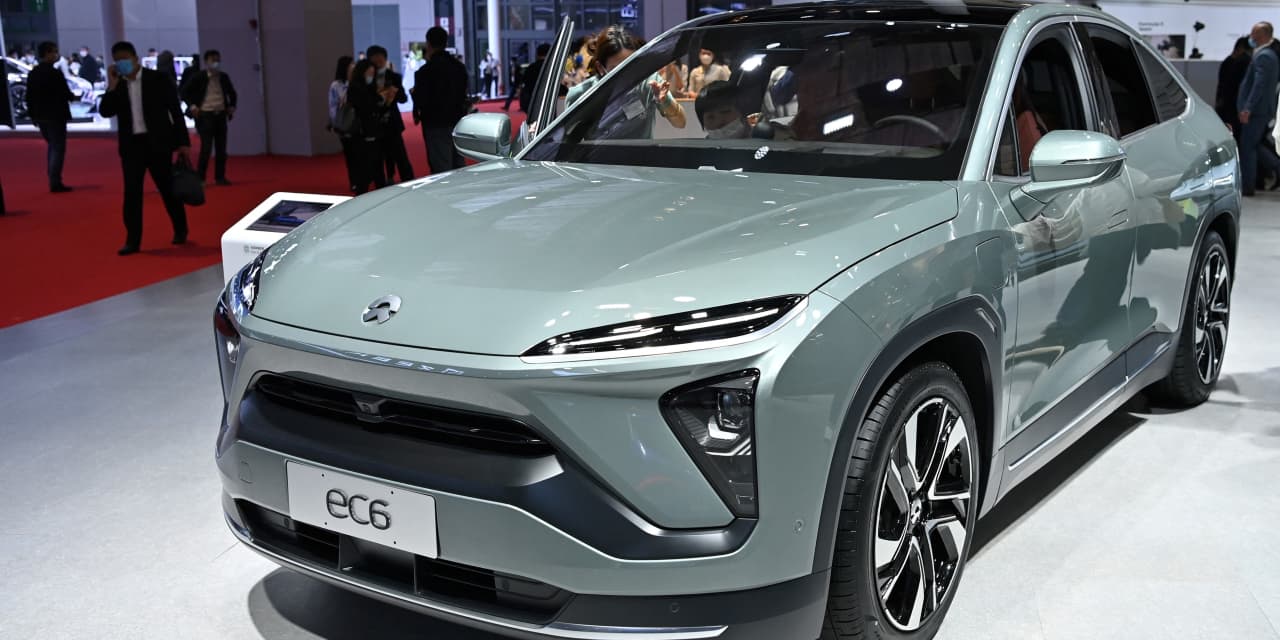Electric vehicle companies are more than just car companies. Chinese electric vehicle maker
NIO
is another example of why.
NIO
could spin off its battery production arm by the end of this year, Reuters reported, citing unidentified people familiar with the plans.
NIO didn’t immediately respond to a request for comment.
The move would be part of the push to make the company profitable and reduce costs. NIO reported a $542 million loss for the third quarter on Tuesday.
NIO delivered about 55,000 vehicles in the third quarter. Automotive manufacturing is a scale business and car companies typically need to ship about 100,000 units a year to generate consistent profits. NIO peer
Li Auto
has become a profitable EV maker, joining
Tesla
and
BYD.
It shipped about 105,000 units in the third quarter.
NIO’s American depositary receipts were up 2.3% in premarket trading Wednesday at $7.60 while
S&P 500
and
Nasdaq Composite
futures were both down about 0.2%.
Battery manufacturing isn’t what investors think of first when they think of other businesses inside NIO. They think of battery swapping. NIO pioneered a unique way to over come range anxiety, the fear of running out of juice with limited charging options, by building a network of battery-changing stations. NIO vehicles can drive into a bay, have the empty battery removed, and a new, full, battery installed. The process takes minutes.
NIO has more than 2,200 swap stations operating that have changed batteries 32 million times.
That business unit would also have value, but that isn’t slated to be spun out soon. It’s a little like
Tesla’s
network of supercharging stations. Tesla operates the largest network of fast-chargers in the U.S. Tesla drivers pay to fill up much like a traditional driver pays the
Exxon
station for a tank of fuel.
EV companies, essentially, are part gas station operators. Investors can remember that when they are comparing them to traditional car companies.
Coming into Wednesday trading, NIO shares have dropped 24% so far in 2023. Rising price competition in China, the biggest market for EVs, has made it tough for industry players this year.
Write to Brian Swint at [email protected]
Read the full article here




